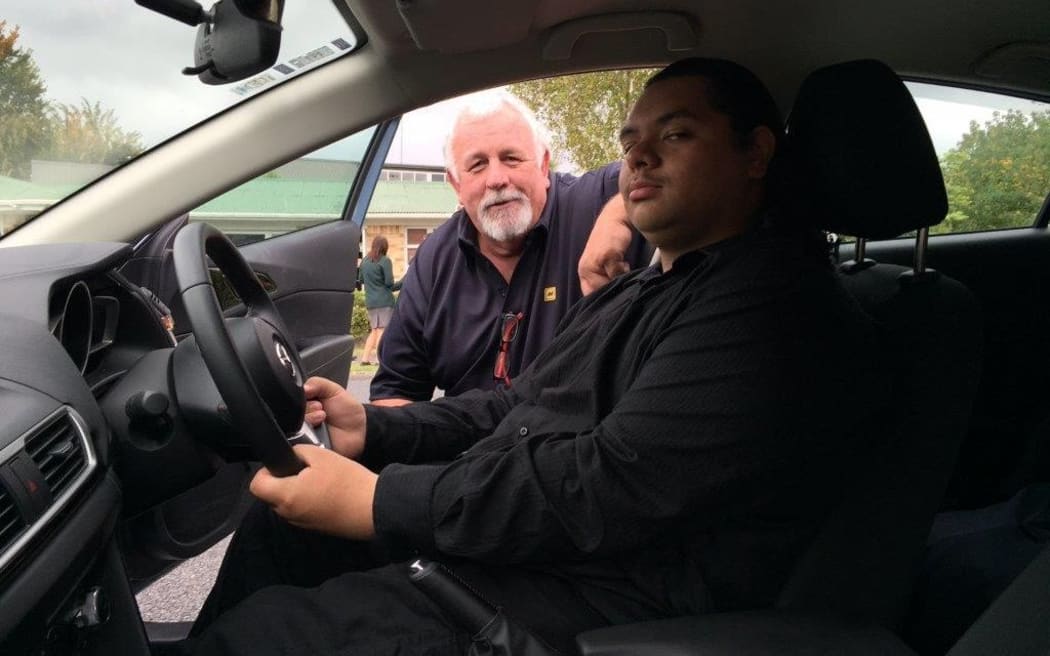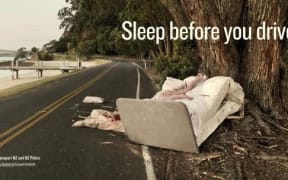A driving instructor is urging parents and caregivers to pay for their rangatahi to do defensive driving courses because it could save their lives.

Colin Manion and Raymond Hughes Photo: SUPPLIED / Transport Agency
An Otago University study published earlier this year found that few Māori were taking part in them.
4,000 people nationwide were interviewed for the study, which found many of the 850 Māori learner drivers didn't take a defensive driving course.
But a driving instructor Colin Manion said the programme, which can cost up to $200, could be a life-saver.
"I think everyone will benefit. If you save one life.... what's the value of one life, when they work it out statistically, it's millions [of dollars], isn't it?
"Is it really costing you to fund those course or not? The cost to the family... the personal cost, [the] loss and things like that.
"How do you calculate that? I mean smarter people than me need to be doing that. I just know that it's got to be cheaper to educate people than to bury people."
For the past two years, Mr Manion has helped more than 100 people - most of them Maori - to get their restricted licence as part of a community initiative based at Te Kuiti Community House Trust.
The latest graduates did not have to pay, and also had free access to a car for lessons and to sit their test thanks to support from the Transport Agency, AA and Caltex.
The programme is run in four other locations including Porirua and South Auckland, but one Te Kuiti graduate, Tamirangi Soper, said it should be available everywhere.
"I think it should be rolled out through the whole of New Zealand [because] it's a great opportunity.
"It's fun, it's exciting [and] they help you with your confidence levels. I think it should be rolled out everywhere not just in small communities."
Her grandmother, Georgina Ngaraima Turner-Nankivell, said she also benefited from her moko getting her licence.
"I'm pretty well-assured that she's going to get it. And her and I are going to go [places] by ourselves and it's enabling me to go to the hospital quite a lot, which I'm doing at present, and it relieves her mother to do her work too."
Mr Manion said the programme works.
"I've come across people, who have moved to different areas and have really excelled in themselves.
"And I think sometimes that to be honest that getting their licence is the first time some of these people have passed anything.
"Whether it would be something through school or whatever.... And I think there is not enough emphasis through the schools... and it's not the schools' fault, they have their own curriculum but there's so much emphasis on computers and education. But a lot of these kids aren't going to go into the academic world."
Raymond Hughes, who lives with autism, is Mr Manion's 100th student to have graduated from the course in Te Kuiti.
He had one message for people living with autism.
"I just don't want them to over-think the mistakes, you know.
"Because, I want them to accept a new reality and if you ever make a mistake the second time.... then just don't worry about it. When it comes to a driving course, anything is possible... you'll correct those mistakes in due time."
Mr Hughes said he was exhilarated to have obtained his restricted licence.
His sister Jody Hughes said his confidence has soared and her brother's also looking to the future.
"He wants to get tohu [licence] maybe for a truck. Get a bit of experience under his belt and then, he's thinking like not next year's goals - he's thinking future ... future goals."
She said her brother is thinking about long term goals, things she says she wasn't thinking about when she was 19-years-old.
Mr Manion has offered Raymond Hughes one-on-one training to help prepare for the fork lift test, as well as wheels tracks, and rollers licence, but that's only if he keeps out of trouble and passes his full driving test.


